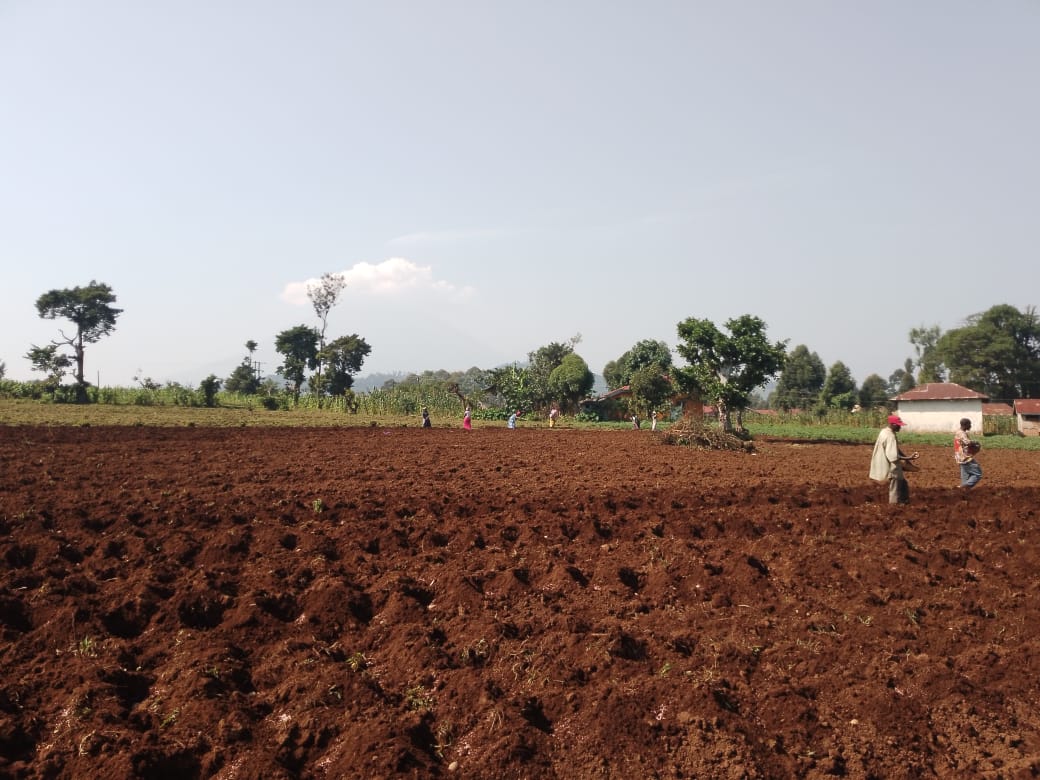At Kisoro Potato Growers Cooperative Union Limited, empowering farmers with best practices in agriculture is a core mission. Recently, an agronomist from the Union conducted a knowledge-sharing session, guiding farmers on the essential agronomic practices required to cultivate healthy, high-yielding potato crops. This hands-on training focused on providing farmers with actionable techniques to improve productivity, manage pests and diseases, and ensure sustainable farming.
Key Potato Agronomic Practices Shared with Farmers
- Land Preparation and Soil Health
- The agronomist emphasized the importance of thorough land preparation for potatoes, advising farmers to begin by loosening the soil and ensuring it is well-drained and rich in organic matter.
- Farmers were encouraged to conduct soil testing to understand the nutrient needs of their fields, as potatoes thrive best in slightly acidic to neutral soils (pH 5.0–6.5).
- Organic manure and compost were recommended to enrich soil fertility, enhancing root growth and tuber development.
- Selecting Quality Seed Potatoes
- The agronomist highlighted the importance of using certified seed potatoes to avoid common potato diseases. Certified seeds are typically disease-free and produce uniform, high-quality crops.
- Farmers learned how to select healthy seed tubers, ideally small and well-sprouted, to achieve better growth rates and higher yields.
- Planting Techniques
- Proper spacing is crucial for healthy growth and ease of maintenance. The agronomist recommended spacing seed tubers 30 cm apart in rows that are spaced 75 cm apart, allowing enough room for tuber expansion.
- The farmers were shown how to plant tubers at a depth of 10–15 cm and cover them with soil to prevent sun exposure, which can lead to greening and tuber spoilage.
- Irrigation and Water Management
- Adequate moisture is essential for potato growth, particularly during the flowering and tuber-forming stages. However, overwatering can lead to diseases.
- Farmers were advised to adopt a consistent irrigation schedule, especially during dry spells, while ensuring proper drainage to avoid waterlogging.
- Pest and Disease Management
- The agronomist discussed common potato pests and diseases, such as late blight and bacterial wilt, and taught farmers how to identify early signs of infestation.
- Integrated Pest Management (IPM) strategies were emphasized, including crop rotation, proper plant spacing, and the use of natural pesticides to minimize chemical usage.
- Farmers were encouraged to practice field sanitation by removing any infected plants to prevent the spread of diseases.
- Weeding and Hilling
- Keeping the potato fields weed-free is essential, as weeds compete for nutrients, water, and sunlight. The agronomist recommended manual weeding or the use of approved herbicides.
- Hilling, or mounding soil around the base of potato plants, was demonstrated as a crucial technique. This practice promotes tuber development and prevents tubers from being exposed to sunlight, which can cause greening.
- Fertilizer Application
- Fertilizers should be applied based on soil test results. The agronomist explained the appropriate use of nitrogen, phosphorus, and potassium to support tuber formation and plant health.
- Farmers were also advised to avoid over-application of nitrogen, which can lead to excessive foliage growth at the expense of tuber development.
- Harvesting and Post-Harvest Handling
- The agronomist shared the importance of harvesting potatoes at the right time, generally when the foliage begins to die back.
- Farmers were shown how to handle and store harvested potatoes properly to prevent bruising and spoilage, which is crucial for maintaining quality and market value.
Building Capacity for Sustainable Potato Farming
Through this training, the Union’s agronomist provided farmers with a strong foundation in sustainable potato farming, equipping them with practical skills that will improve their productivity, quality, and marketability. By implementing these agronomic practices, farmers can look forward to higher yields, reduced losses, and better returns on their efforts.
A Step Toward Agricultural Excellence
The Union’s commitment to providing such training sessions underscores its dedication to improving farmers’ livelihoods through knowledge and support. As farmers adopt these practices, they can build a more resilient agricultural future, increase their income, and contribute to food security in Kisoro and beyond.



